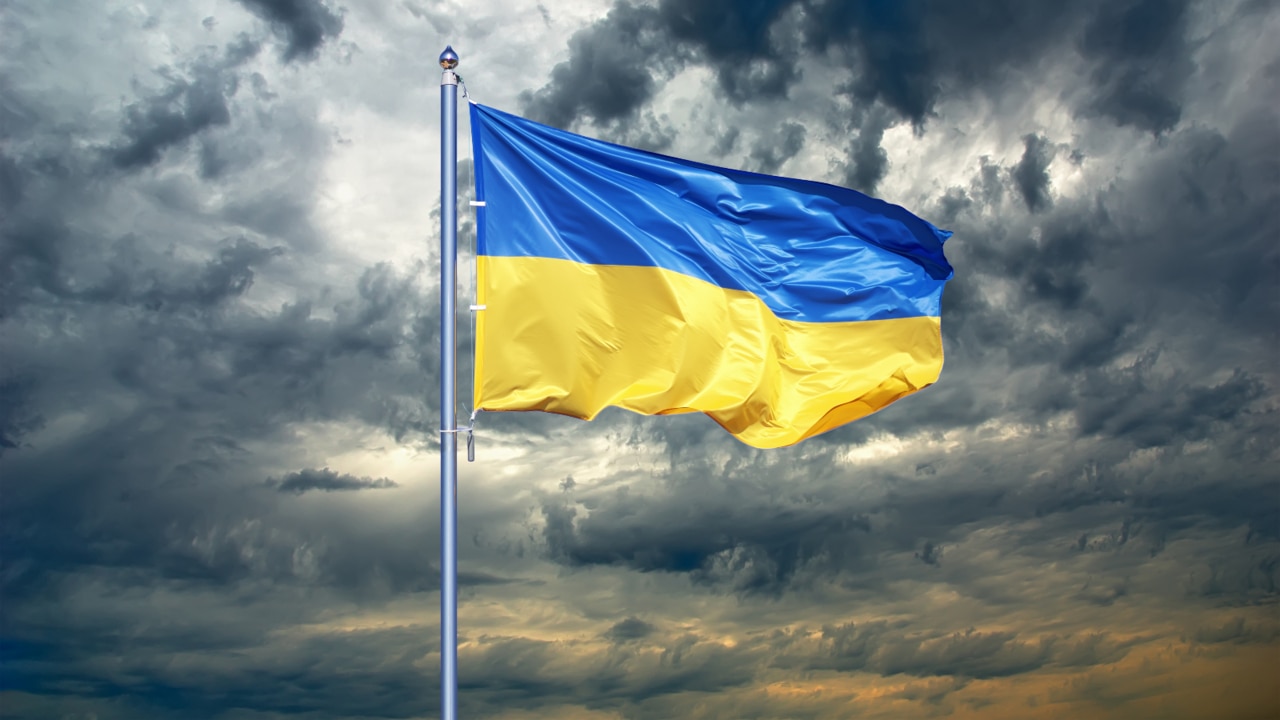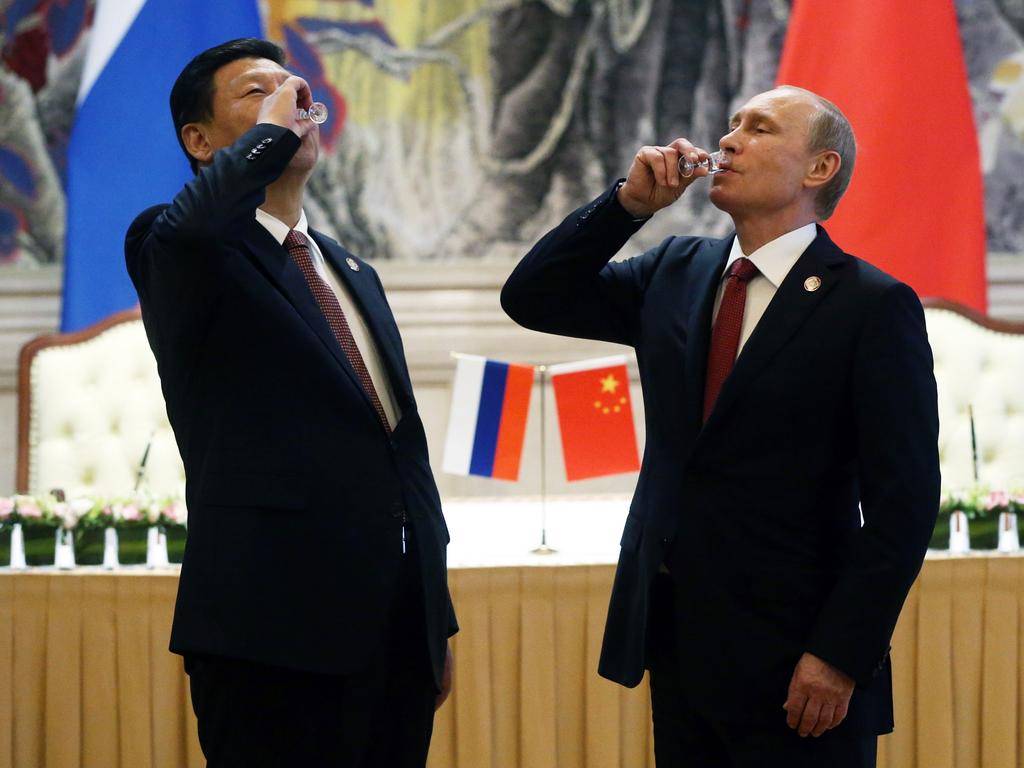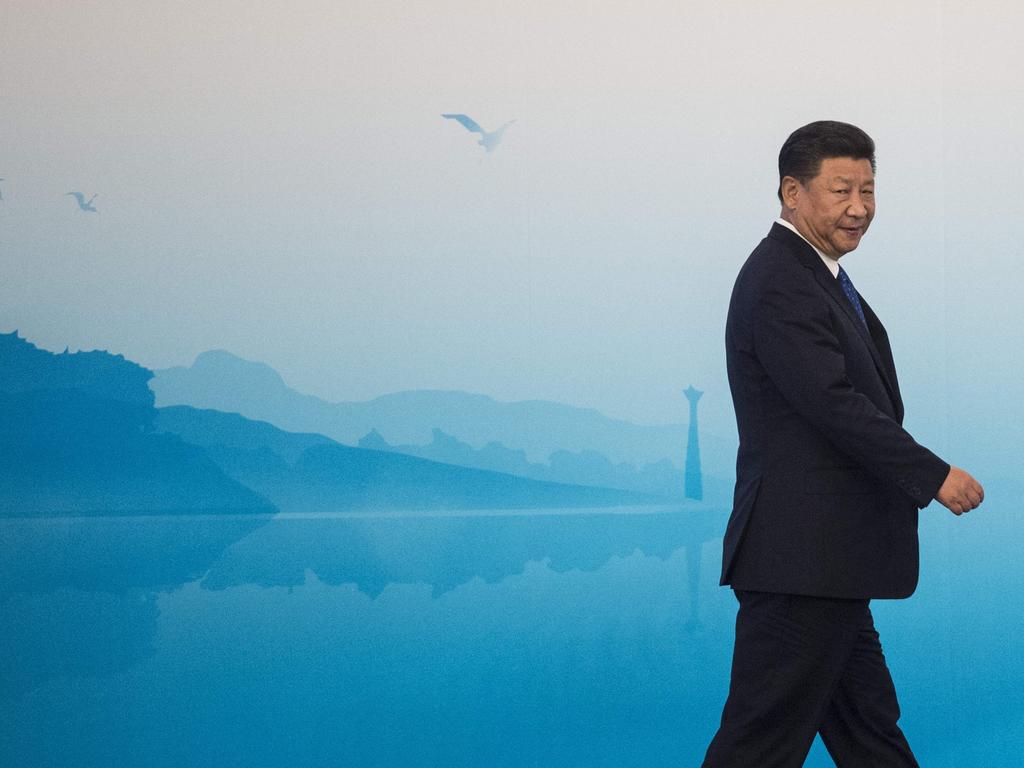Ukraine war heralds dawn of a new world order
It’s madness for us to render ourselves strategically impotent by giving vast control of fossil fuels to autocracies such as Russia.

The Ukraine war is changing democratic politics everywhere. It is also transforming the equations confronting autocracies, as well as those democracies, such as India, that are not formally aligned with the West.
And it is also producing huge underlying changes in the global economy.
We don’t yet know how or when this war will end, nor which changes will be long-lasting and which will be temporary or easily reversed. It’s too early for definitive winners and losers.
The world is in flux, economically, militarily, politically, and even culturally. Ukraine is the fulcrum of change. It will be at least as important to global politics today as the Spanish Civil War was in the 1930s.
A senior US official from the Donald Trump era compares it with the Korean War, which – apart from being a tragic slaughterhouse for Koreans – gave shape and definition to the first Cold War for nearly 40 years.
To start with, Ukraine has transformed the politics of energy. Even with all the Western sanctions so far imposed on Russia, Europe is still paying Vladimir Putin’s regime more than $US1bn a day for oil and gas.

Europe is more committed to climate action and net-zero emission than any other region in the world. But like all advanced economies, indeed like all economies, it still depends on gas and oil. By closing down much of its own possible gas exploration and production – fracking is banned all over Europe – it has handed Russia enormous strategic leverage.
Many of its emissions reductions are, on a global basis, fictional. What is not produced in Western Europe is produced in Russia. But oil and gas production in Russia occurs with much lower environmental standards than it would in Western Europe.
The planet doesn’t benefit while the world’s autocrats, Putin chief among them, gain enormous power. But as the atrocities committed by the Russian military continue day by day, the overwhelming moral sentiment will be for Europe to refuse all Russian oil and gas. The Ukrainians believe their survival depends on their own courage, the continued supply of weapons, especially missiles, and continued and increasing Western sanctions on Russia.
Energy policy is now in play all over Europe, and all over the world. The Wall Street Journal gives a taste of the European mood: “Germany is stockpiling coal and expediting terminals for liquefied natural gas. Europe is working to get more gas through pipelines from Norway and Azerbaijan. Poland plans new nuclear plants. The UK may restart onshore fracking and ramp up North Sea drilling. Norway plans to expand Arctic exploration.”
France, too, expects to increase its fleet of nuclear-power plants.
So much that has been confidently asserted by the climate consensus about energy policy turns out to be completely untrue, a reality both revealed and accelerated by Ukraine. For example, forget all the ridiculous talk about “stranded assets” in coalmines and the like. Volodymyr Zelensky asked Australia for extra coal. He didn’t, as Matt Canavan acidly observed, ask for solar panels.
The Australian Financial Review reported a telling Australian example. Yancoal bought Rio Tinto’s NSW thermal coal assets five years ago. They have already yielded just under $2.4bn in profit. If they make a tick over $600m profit in 2022, which they will easily given soaring coal prices, they will have paid themselves off and be in the black, with pure gain going forward. That’s a mighty fine return from a stranded asset.
All Western nations with even the faintest smidgen of policy realism have to accept that gas is relatively clean energy, and like it or not is absolutely necessary for decades ahead. The inconvenient truth is oil and coal will be economically and strategically central for many years as well. The Western decision to get out of fossil fuels was ideological, not remotely economic. This is evident in China massively ramping up its coal production and use, with similar moves in India, Indonesia and other nations not constrained by the Western consensus.
It is right to try to reduce global greenhouse emissions. It’s madness, and a madness electorates will likely not tolerate very well, for the West to render itself strategically impotent by unnecessarily giving vast control of fossil fuels to autocracies such as Russia.
Thus by a long distance the stupidest geostrategic remark of the week came from UN Secretary-General Antonio Guterres, who described Australia as a “laggard” for not committing to more ambitious climate targets.

Apart from the crass ignorance this statement displays about what Australia has actually done, it is an unbelievable statement in the middle of Europe’s existential energy crisis. If Australia shut down its gas industry, it would lower emissions. That would give even more power to Russia and the Middle East LNG providers. If Nigel Farage was not making so much money on TV and speaking circuits, he could found a United Kingdom Energy Independence Party and win 25 per cent of the vote without campaigning. European leaders know their energy policies must change and their electorates are primed for energy revolt. Australia’s Energy Minister, Angus Taylor, is right to facilitate more gas facilities and increased gas exploration.
Joe Biden is trapped in this contradiction. His administration has a raft of policies to discourage oil and gas exploration and production while he begs Saudi Arabia, Venezuela and a raft of other authoritarians to increase their production. Green politics doesn’t equate with economic and strategic reality.
Western contradictions will become more acute because of the global slowdown and rising inflation the Ukraine conflict will unleash. Economically, we have not yet fully recovered economically from Covid and now, according to the OECD, the Ukraine war will shave well over 1 per cent off global output while adding more than 2.5 per cent to global inflation.
All Western governments, including Australia’s, have massively overspent during Covid and fuelled their own inflation, and electorates will have even less appetite for higher energy prices.
Governments will also need to pay a lot more for their militaries. Germany, Western Europe’s natural giant, has been transformed by the Ukraine war. For the first time since World War II, it has sent lethal weapons to a nation at war. Chancellor Olaf Scholz, a Social Democrat, authorised an immediate boost of €100bn ($147bn) for the German defence budget. With strong bipartisan support from the Christian Democrats, he has solemnly promised that Germany will permanently spend more than 2 per cent of its GNP on its military. This will make Germany the world’s third-largest defence spender. A country like Spain, nearly 50 million people and extremely affluent, spends just 1 per cent of its GNP on defence. Like most of the Europeans, it is a free rider on the Americans. Yet the Russian invasion of Ukraine shows us what the world will look like if American power does fade in the way its enemies want, and its allies’ slackness promotes.

Australia, too, will have to ramp up its so-far pathetic effort on military capability and acquire missiles, drones, warships and submarines within the next decade, not in some infinitely distant Star Trek time far beyond the ken of any active politician today. No Western government any longer can get by on promise; they will be judged on performance.
Matt Pottinger, the deputy national security adviser under Donald Trump – until he resigned in disgust after the Trump-inspired occupation of the Capitol building on January 6 last year – is one of the few Trump administration’s senior officials to emerge with an enhanced reputation. He argues the US must double its defence spending. Even then it would not be spending the proportion of its national wealth on defence which it did when Ronald Reagan was president, and that was not the peak of US military expenditure during the Cold War.
Another lesson from Ukraine is that the US needs to be a global power, and the world needs the US to be a global power. The Europeans must do much more, but the Americans will need to lead NATO in Europe. Without the Americans, NATO amounts to very little. But the main challenge to the US comes from China.
US leadership in Europe means an army-centric force structure. In Asia it means a navy-centric force structure. In the Indo-Pacific, the US needs a much bigger navy, more dispersed and hardened bases, and much more long-range strike capability. Joe Biden has performed disastrously in the Middle East, one area where Trump undeniably did well. Biden is pursuing a calamitous deal with Iran which would also empower Russia – and, partly as a result, he has lost the trust, confidence and respect of US allies throughout the Middle East, especially the Gulf Arabs. The US needs to be successful in Europe, the Middle East and Asia.

It doesn’t need to fight in all three places. The more successful and the more formidable it is, and the more help it gets from its allies, the less likely are episodes such as Russia’s invasion of Ukraine.
Scott Morrison was right to talk of an “arc of autocracies”. The West is effectively opposed today by a pragmatic de facto alliance among the majority of the world’s autocracies. They are united by their hatred of the West, their rejection of liberalism, their desire to snuff out democracy even among their neighbours (lest it prove contagious), and their willingness to co-operate with each other.
In a population of 10 million, 1.5 million came out in support of pro-democracy demonstrations in Belarus in 2020. The Belarus government sought help from Russia on the techniques for suppressing such movements, and it was eagerly given. Mass arrests are not necessary if you arrest the demonstrators’ leaders and rape, torture and murder them.
Functionally, if not ideologically, this is akin to the opposition the West faced from communism during the Cold War.
Anne Applebaum in The Atlantic late last year wrote about “Autocracy Inc”, which, she said, “grants its members not only money and security but something less tangible and yet just as important – impunity.” And Walter Russell Mead argues that the West is alone in another way. NATO members plus Japan, Australia, South Korea, New Zealand and Singapore have come out strongly against Russia in this war. But most other nations have been quite circumspect.
When US Secretary of State Antony Blinken visited recently, senior US officials told me that the Biden administration believes the geostrategic future of the world depends heavily on the way key “swing states” develop – nations such as India and Vietnam. But both of those, as well as others like Brazil and South Africa, reject the Western political and sanctions campaign against Russia.
Again, this underscores the need for a global America. When the US reached out to India under George W Bush, the idea was that it would become India’s chief defence hardware supplier. But it is too expensive and the regulatory burdens it places on India are too great, so India remains overwhelmingly dependent on Russian technology for its nuclear submarines, air-defence systems and many other military capabilities critical to India’s disposition towards China.
Israel needs to be able to strike Iranian military establishments in Syria. To do this, it needs the tacit acceptance of the main foreign power in Syria, which is Russia.
So even Israel is not implementing the full sanctions suite against Russia.
There are two other provisional reflections on the international political outcomes from Ukraine. First, the Ukraine war, in all its terrible, bare and yet at times magnificent humanity, demonstrates the essential idiocy of the psychedelic cul-de-sac of woke nuttiness the contemporary West has wandered down, mistakenly thinking it has discovered the future. Ukrainian women, like their men, have been transcendently brave. But no Ukrainian family goes to the Polish border and sends the husband and children off to seek safety abroad while the wife goes back to fight the war. Ukrainian men kiss their wives goodbye at the border, weep over their children – and then take their rifles to turn around and go back to fight and if necessary die for their country and their family.
That is the way it has always been, and always will be. The West’s woke fruitiness is at war with human nature.
And then, finally, what are we to make of Western education systems that tell children and undergraduates that their societies are evil at their core, based on slavery, founded on racism, with unconscious bias afflicting every moment of national life – sexist, racist, patriarchal, colonial, hetero-normative, economically exploitative … blah blah blah.
Such evil places, these Western societies! Even with their democratic elections, rule of law. universal healthcare, free schools, extensive welfare systems, huge transfer payments, welcome to immigrants. How does that evil compare with real evil, with a Russian army which bombs maternity hospitals and attacks theatres where civilians are huddling for shelter – which levels Mariupol and shells refugee convoys. Normal people know that the Western education systems are basically teaching lies. But no matter how many times conservatives win elections, the dominant cultural institutions never change.
One thing about war: it’s not the least bit postmodern. Everyone has to face reality.





As Russia’s simultaneously merciless and unsuccessful invasion of Ukraine grinds into its second month, with perhaps 15,000 Russian soldiers dead and surely many more Ukrainian civilian and military casualties, it is up-ending politics the world over.